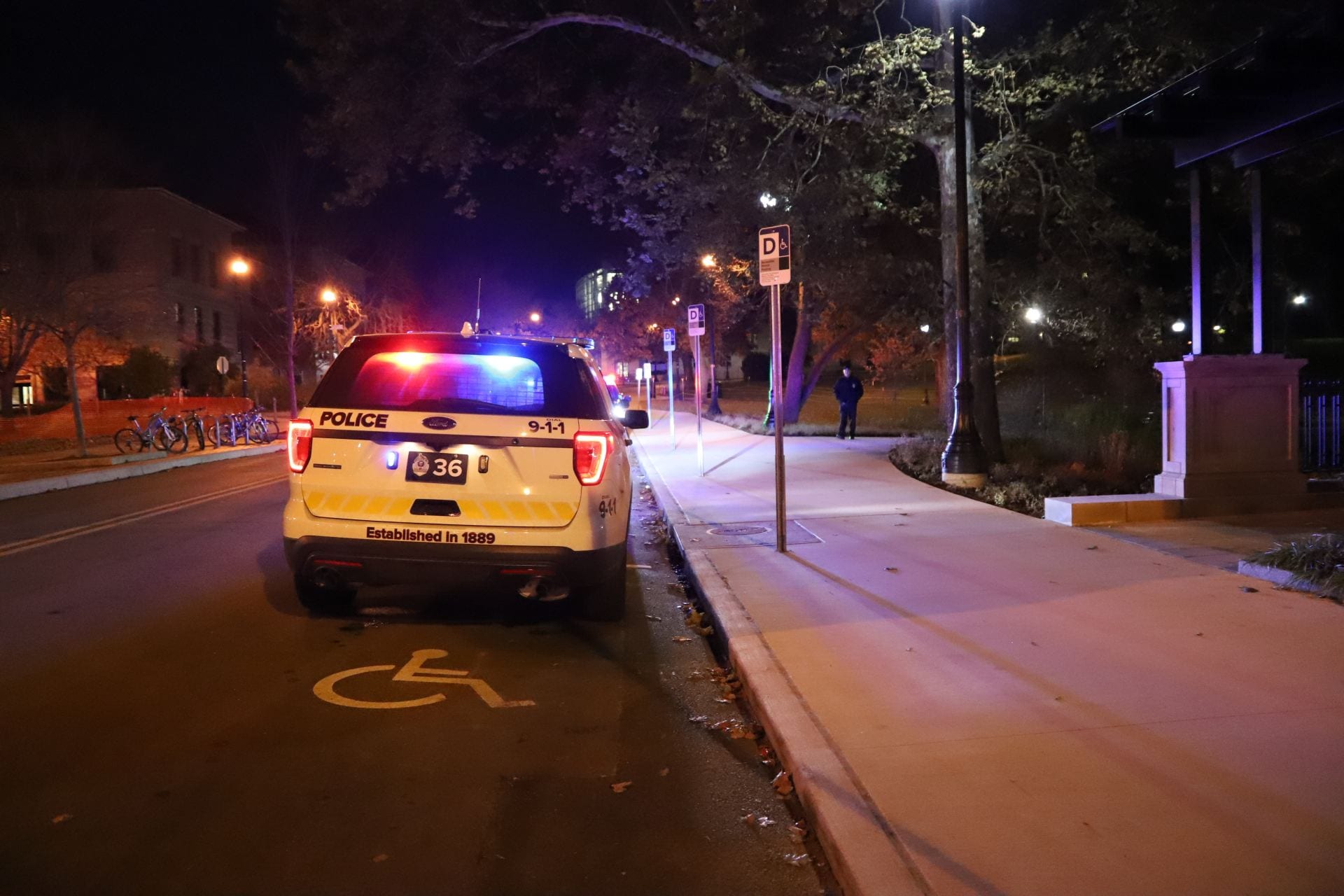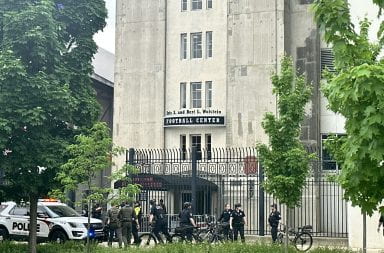Ohio State and all colleges and universities should make journalism part of “the very DNA of American higher education,” a prominent OSU law professor declared Friday at a symposium.
“My question is, what would it be like to organize an entire college or university education around the idea of journalism?” said Peter Shane, who recently completed work as the executive director of an ambitious study of the information needs of America’s citizens.
Shane directed the work of the Knight Commission that produced the report “Information Needs of Communities in a Democracy.” He holds a distinguished chair at the Moritz College of Law and is director of the Project on Law and Democratic Development there.
Training citizens to critically analyze media content would be a key element of this educational shift, and Ohio State could lead the way, Shane said.
“Indeed, if I am on to something here, might Ohio State not be the perfect place to launch this educational vision?” Shane said.
The symposium brought together Ohio State educators and community leaders to discuss the Knight Commission study.
The symposium – Informing Ohio Communities — introduced ideas on how to train people from all walks of life to deal with the enormous amount of information available in the digital age.
“I see us today raising questions,” said Harvey Graff, an OSU professor and Ohio Eminent Scholar in Literacy Studies. “We need to think hard about democracy and its many meanings.”
A media savvy public has the power – and responsibility – to keep government in check.
Ohio’s recent casino referendum and citizens’ understanding of its impact on the city is an example of the need for literacy, Shane said.
New and changing technology “is potentially making everyone a journalist,” he said.
Educating the public is important, Shane said. He noted that there’s little local news available, few citizens understand how government works and many students have poor writing skills.
Shane cited some exciting aspects of the commission report. It focused on:
* the needs of citizens, not the media.
* the lack of quality information for certain communities.
* How to provide “reliable news and information.”
* How citizens can get and use digital tools to gather good information.
* How to get citizens to participate in government.
“Its product was not a nostalgic report on saving things”, he said.
“The role of journalism was very much of concern to the commissioners,” Shane said. In addition to “preserving journalism where it exists – we need to create it where it does not,” he said.
That idea becomes more important as media outlets continue to make cuts. He said citizens need “intermediaries” to help them understand the news.
“Private markets for general local news or for access to the readers of general local news will never generate sufficient resources to do the things that communities need journalism to do,” Shane said.
Students are encouraged to look for both credible and relevant information at OSU libraries, said Anne Fields, associate professor and subject specialist for English.
“If it isn’t both credible and relevant, I urge them to look for information that is more credible and more relevant, often to their great annoyance,” Fields said.
WOSU has challenges in reaching the public.
Tom Reiland, general manager of WOSU public media, said credible information is essential to democrary but that “challenges with our resources are really daunting.”
State Sen. Ray Miller said race exclusion is another issue that needs to be addressed in an educated public.
“When there is a disconnection you are out of touch – you have been excluded from participation,” he said.
The public has problems determining what is most important amid the avalanche of information today, said Michael McCluskey, assistant professor in the School of Communication.
“There is so much information there that it ends up being confusing – and sometimes they have a really hard time sorting it out,” he said.
McCluskey also said that he’s skeptical that OSU can implement the ideas presented at the symposium.
He said that at OSU “almost everything is directed toward programs that are going to spur economic development.”
Said McCluskey: “I’d love to see it, but I’m pretty skeptical.”


